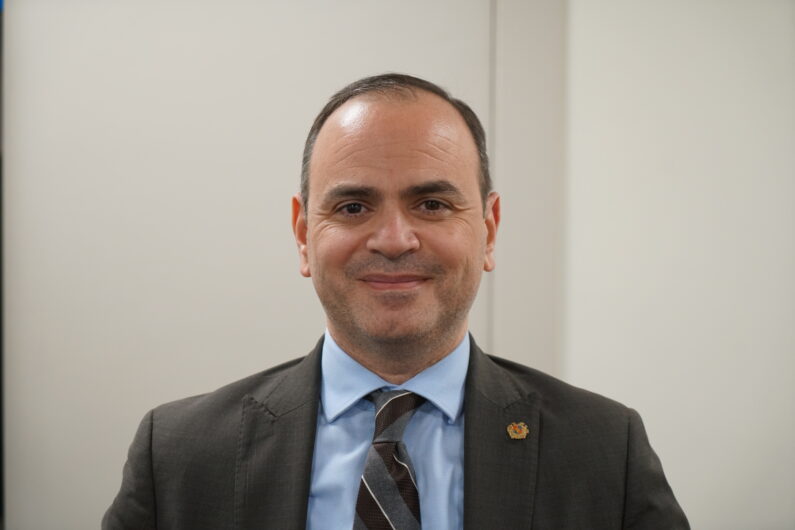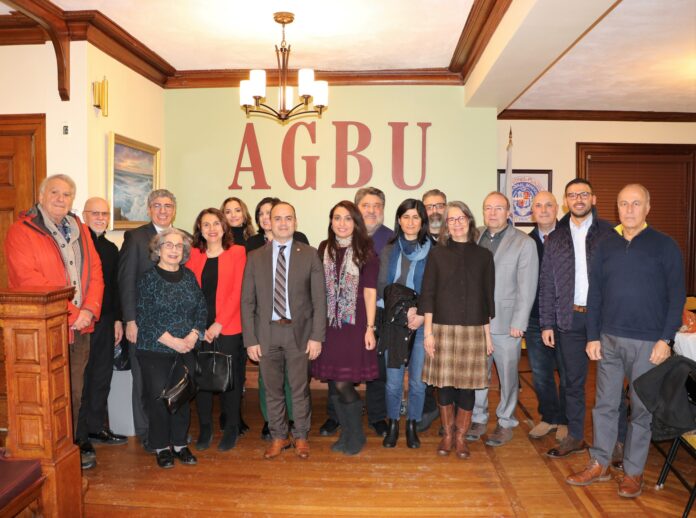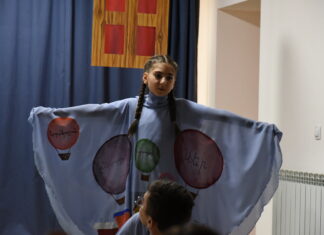WATERTOWN — High Commissioner for Diaspora Affairs of the Republic of Armenia Zareh Sinanyan gave a presentation on the activities and goals of his office to a group of Armenian community leaders of Boston at the New England Armenian General Benevolent Union headquarters in Watertown on February 24. This was part of a series of visits to US cities which also included Dallas, Houston, New York City, Fairlawn, Paramus, Philadelphia and Providence.

Sinanyan was accompanied from his office by Anaïs Astarjian, who serves as US community liaison and is originally from the Boston area. Unlike earlier visits to the US, such as to Los Angeles in June 2022, his current East Coast tour was not accompanied by protests organized primarily by the Armenian Revolutionary Federation (ARF). In fact, a number of representatives of this political party and its auxiliary organizations politely participated in the meeting.
Presentation on Programs
The formal part of the meeting was a presentation with slides by Sinanyan on the various programs of the Office of the High Commissioner, which was created in June 2019. During the meeting, he proclaimed that it has been working on building a strong relationship with the Armenian diaspora in four directions. He said, “The first direction is promotion of repatriation and integration of repatriates. The second direction is the strengthening of the Armenia-diaspora partnership. The third direction is researching, empowering and supporting diaspora communities, and the fourth direction is the development of Armenia-diaspora strategy.”
Repatriation
In the most recent period of independence, Armenia has experienced a number of waves of repatriation, though Sinanyan admitted that they have not been anywhere near the size that is desired. “During each spike,” he said, “Armenia has shown that it is not really prepared to absorb repatriates, or provide an experience that makes that repatriation sustainable and long term for many of those people that initially chose Armenia.” He gave as an example that approximately 50-60 percent of an estimated influx of 30,000 Syrian-Armenians, who came primarily from around 2011 to 2013, with lesser numbers later, left Armenia.








